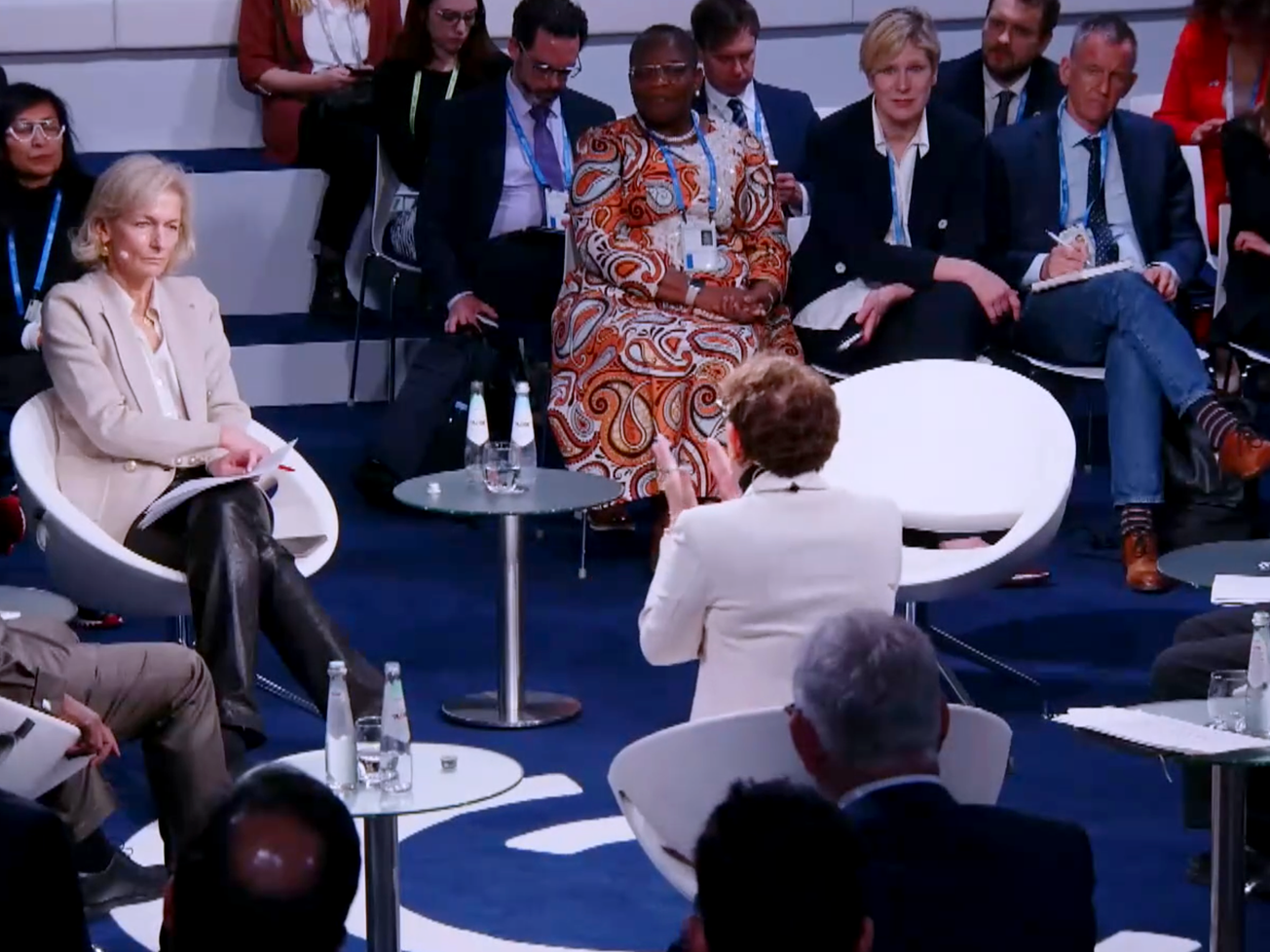U.S. President Joe Biden and Chinese President Xi Jinping agreed to "manage the competition responsibly and maintain open lines of communication" during a face-to-face meeting while both attended the Group of 20 major economies' summit.
Biden told reporters after their meeting on Monday he's optimistic the rising tensions can be dialed back.
"I absolutely believe there need not be a new Cold War. We — I’ve met many times with Xi Jinping, and we were candid and clear with one another across the board. And I do not think there’s any imminent attempt on the part of China to invade Taiwan," Biden said at a press conference in the Grand Hyatt Hotel at Bali, Indonesia.
An earlier White House readout after their meeting spoke to the rising tensions between the two superpowers not reflected in their handshake and smiles before TV cameras and photographers on the sidelines of the summit in Bali, Indonesia.
Biden and Xi discussed working together on climate, debt relief, health and global food security, it said, and "agreed to empower key senior officials to maintain communication and deepen constructive efforts on these and other issues."
The U.S. president pressed his counterpart on human rights in Xinjiang, Tibet and Hong Kong, and emphasized U.S. policy toward Taiwan is unchanged – not publicly saying if America will defend the island – despite his remarks otherwise.
But he also objected to China's "coercive and increasingly aggressive actions toward Taiwan, which undermine peace and stability across the Taiwan Strait and in the broader region, and jeopardize global prosperity."
Biden discussed Russia's invasion of Ukraine, including the Kremlin's "irresponsible threats of nuclear use, and raised concerns about North Korea's "provocative behavior," the White House said.
"President Biden and President Xi reiterated their agreement that a nuclear war should never be fought and can never be won and underscored their opposition to the use or threat of use of nuclear weapons in Ukraine," it said.
At a news conference with Xi, Biden said they "share a responsibility, in my view, to show that China and the United States can manage our differences, prevent competition from becoming anything ever near conflict, and to find ways to work together on urgent global issues that require our mutual cooperation."
Biden told Xi at the news conference in Bali's Mulia Hotel that the world "expects China and the United States to play key roles in addressing global challenges, from climate changes, to food insecurity, and to — for us to be able to work together. The United States stands ready to do just that — work with you — if that’s what you desire."
Xi noted the last time they met was in 2017, during the World Economic Forum meeting in Davos, Switzerland, before Biden assumed the presidency. Since Biden won the White House, Xi said, the two leaders have been communicating through video conferences, phone calls, and letters.
"But none of them can really substitute for face-to-face exchanges. And today, we finally have this face-to-face meeting," Xi told the news conference.
Countries whose largest trading partner is China or the USA. #geoeconomics pic.twitter.com/bwz4stm23I
— Velina Tchakarova (@vtchakarova) November 8, 2022
China presses to 'elevate the relationship'
Xi said the China-U.S. relationship now "is in such a situation that we all care a lot about it, because this is not the fundamental interests of our two countries and peoples and it is not what the international community expects us" to do.
"As leaders of the two major countries, we need to chart the right course for the China-U.S. relationship. We need to find the right direction for the bilateral relationship going forward and elevate the relationship," said Xi. "The world has come to a crossroads. Where to go from here — this is a question that is not only on our mind but also on the mind of all countries."
Each leader came to the summit newly empowered by their nations' politics.
Xi consolidated power to gain a third five-year term as the Communist Party’s general secretary, something not seen since Deng Xiaoping from 1978 to 1989 and Mao Zedong from 1949 until his death in 1976. After decades of power sharing among leaders, the party appeared to be returning to the era of one-man rule.
Biden, meantime, is buoyed by the Democratic Party's strong showing in midterm elections that kept the U.S. Senate under their control and turned away many of former President Trump's GOP election deniers who could cause trouble in 2024 – bolstering the United States' fraying reputation as a beacon of democracy.
"I think the election held in the United States was — still leaves a little bit uncertain — has sent a very strong message around the world that the United States is ready to play," Biden told the press conference.
"The United States is — the Republicans who survived, and along with the Democrats, are of the view that we’re going to stay fully engaged in the world and that we, in fact, know what we’re about."
He also stopped in Phnom Penh, Cambodia, for the ASEAN summit, where U.S.-China relations and the military crackdown in Myanmar topped the agenda.







